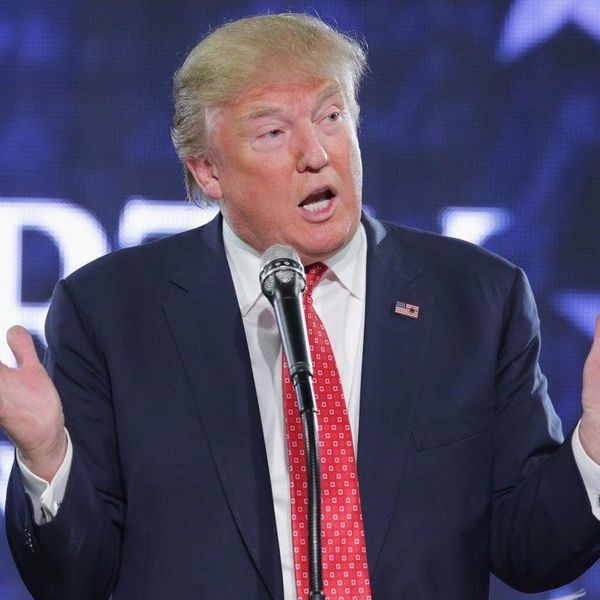Two words: Foreign policy.
Two words that don’t spark a lot of passion from the average American, if not two words that are virtually ignored. A great majority of political discourse is focused on domestic policy, or the government actions that deal with issues within the country. This includes Health Care, Education, Jobs, and the list goes on and on. These are the issues that directly affect citizens so it’s not at all a surprise that these are the promises voters pay attention to during campaigns
The thing is that the President doesn’t have broad and overreaching power when it comes to domestic policy, no matter what Trump’s executive orders make it seem like. Executive Orders are essentially official statements from the President that direct federal agencies on how to enforce existing laws. Executive Orders are not laws themselves; only Congress can create new laws that go into affect by the President’s signature, but only after passage in both in the House of Representatives and the Senate. Executive Orders can be new interpretations in enforcing existing laws, but these are still capable of being stopped by court orders determining legality and constitutionality.
It’s important to remember that while the President is technically head of the government, the implementation of domestic policy can still be checked by the Legislative and Judicial branches, not to mention uncooperative agencies of the Executive branch under the purview of the President.
Foreign policy, however, is a different story.
Of course, the President doesn’t have unilateral power when it comes to Foreign policy either, but the scope of the checks provided to the Legislative and Judicial branches are far more limited in comparison to domestic policy. The Supreme Court hardly has anything to do foreign policy, as cases involving treaties, ambassadors, and disputes with foreign governments and/or their citizens are far outnumbered (if there are any) by domestic cases. Congress is the only body that declare war and gets to set certain policies such as regulation of foreign commerce, quotas on immigration, and allocation of foreign aid and defense budgets. Yet the main job of Congress is to advise and (sometimes) consent on the foreign policy of the President.
While a restricted head of government, the President is a relatively unconstrained head of state. The President dictates the tone and positions the country will take in world politics. For much of recent memory, we’ve followed the general pattern of staunch support of our allies, firm but not completely provocative action towards our rivals, and a willingness and ability to display strength and force against those who threaten American interests. This general pattern has allowed, for the most part, relative diplomatic stability with much of the world.
Trump’s presidency has already shown we’re experiencing a hard break from this stability.
Trump’s seriousness in his campaign’s key promise, the border wall that Mexico will supposedly pay for, is threatening to undo decades of strong cooperation with our southern neighbor. He abruptly ended a call with the Prime Minister Australian, though not before scolding him on an agreement that would have the United States accept refugees detained by Australia, endangers relations with an ally of even deeper history. And, of course, Trump is continuing his praise of Vladimir Putin, even seemingly defending the Kremlin’s reputation for political killings.
This is not to mention comments made about not honoring obligations to assist NATO allies, encouraging the expansion of the U.S nuclear arsenal and the nuclear arsenal of allies so that the U.S does not have to defend them, and advocating for the usage of torture and killings of the families of terrorist. The current Commander-In-Chief of our armed forces is not only someone who is widely unexperienced, but also someone who holds radical world views that threaten to further destabilize a world where right-wing, nationalistic voices ring louder and louder.
What happens when the first foreign crisis situation arises? Will Trump fold? Or will he engage in wildly aggressive action that plunges us into war?
We don’t have a pragmatic diplomat in Trump. We don’t even have a Congress prepared to check his radical tendencies, with a Senate who voted to confirm dubious Secretary of State pick Rex Tillerson and a Speaker of the House lacking the backbone to speak out against Trump’s executive order barring travel into the U.S from several muslim countries.
No amount of protesting will change how Trump will interact on his next phone call with a key global ally nor will it affect any wide-reaching foreign policy decision he makes that may send shockwaves around the nation and the world. This is a man who does not feel he is accountable to anyone who disagrees with him.
This is going to get worse before it gets better.





















